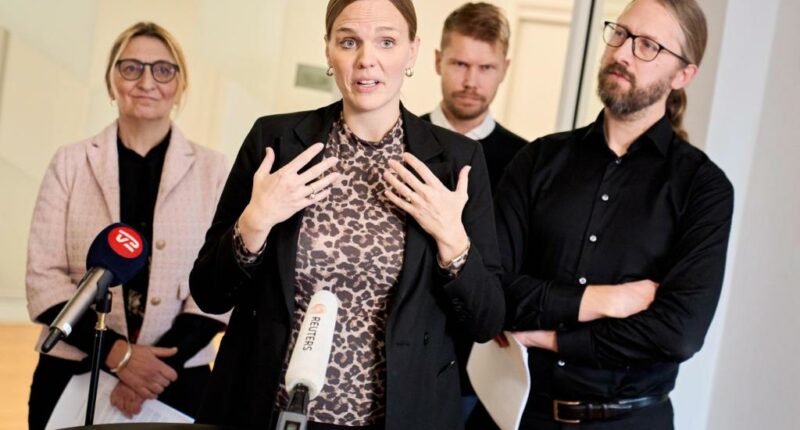Share this @internewscast.com

By JAMEY KEATEN, Associated Press
Denmark’s government unveiled plans on Friday to prohibit access to social media for individuals under the age of 15, escalating the pressure on major technology firms amid rising concerns about the impact of digital content and commercial influences on children.
The proposal would allow parents, following a specific assessment, to grant their children access to social media starting at age 13. However, the enforcement of such a ban remains unclear as many tech platforms already claim to have restrictions preventing pre-teens from signing up, though officials and experts acknowledge these measures often fall short.
This initiative could become one of the most extensive efforts by a European Union nation to curb social media usage among teenagers and younger children, reflecting widespread apprehensions over the digital world’s influence.
Caroline Stage, Denmark’s Minister for Digital Affairs, shared with The Associated Press that a staggering 94% of Danish children under 13 have profiles on at least one social media platform, with over half of those under 10 also engaged.
“The time they spend online and the exposure to violence and self-harm content pose significant risks to our children,” Stage commented. While acknowledging the tech giants as “some of the most successful companies we have,” she criticized them for not using their vast resources to ensure the safety of children and society as a whole.
No rush to legislation, no loopholes for tech giants
Stage said a ban won’t take effect immediately. Allied lawmakers on the issue from across the political spectrum who make up a majority in parliament will likely take months to pass relevant legislation.
“I can assure you that Denmark will hurry, but we won’t do it too quickly because we need to make sure that the regulation is right and that there is no loopholes for the tech giants to go through,” Stage said. Her ministry said pressure from tech giants’ business models was “too massive.”
It follows a move in December in Australia, where parliament enacted the world’s first ban on social media for children — setting the minimum age at 16.
That made platforms including TikTok, Facebook, Snapchat, Reddit, X and Instagram subject to fines of up to 50 million Australian dollars ($33 million) for systemic failures to prevent children younger than 16 from holding accounts.
Officials in Denmark didn’t say how such a ban would be enforced in a world where millions of children have easy access to screens. But Stage noted that Denmark has a national electronic ID system — nearly all Danish citizens over age 13 have such an ID — and plans to set up an age-verification app. Several other EU countries are testing such apps.
“We cannot force the tech giants to use our app, but what we can do is force the tech giants to make proper age verification, and if they don’t, we will be able to enforce through the EU commission and make sure that they will be fined up to 6% of their global income.”
Aiming to shield kids from harmful content online
Many governments have been grappling with ways of limiting harmful fallout from online technologies, without overly squelching their promise. Stage said Denmark’s legislative push was “not about excluding children from everything digital” — but keeping them away from harmful content.
China — which manufacturers many of the world’s digital devices — has set limits on online game time and smart-phone time for kids.
Prosecutors in Paris this week announced an investigation into allegations that TikTok allows content promoting suicide and that its algorithms may encourage vulnerable young people to take their own lives.
“Children and young people have their sleep disrupted, lose their peace and concentration, and experience increasing pressure from digital relationships where adults are not always present,” the Danish ministry said. “This is a development that no parent, teacher or educator can stop alone.”
The EU’s Digital Services Act, which took effect two years ago, forbids children younger than 13 to hold accounts on social media like TikTok and Instagram, video sharing platforms like YouTube and Twitch, and sites like Reddit and Discord, as well as AI companions.
Many social media platforms have for years banned anyone 13 or under from signing up for their services. TikTok users can verify their ages by submitting a selfie that will be analyzed to estimate their age. Meta Platforms, parent of Instagram and Facebook, says it uses a similar system for video selfies and AI to help figure out a user’s age.
Meta and TikTok didn’t respond immediately to requests for comment from the AP.
“We’ve given the tech giants so many chances to stand up and to do something about what is happening on their platforms. They haven’t done it,” said Stage, the Danish minister. “So now we will take over the steering wheel and make sure that our children’s futures are safe.”
AP Business Writer Kelvin Chan contributed to this report.
















